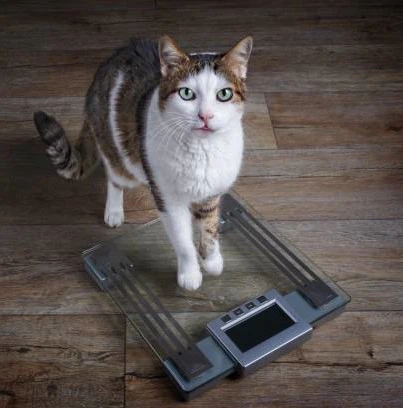Ideal Cat Weight By Breed

When it comes to maintaining the health and wellbeing of your feline companion, understanding the ideal weight for their specific breed is crucial. Too often, pet owners might overlook the significance of keeping their cats within a healthy weight range. Whether you're adopting a new kitten or ensuring your longtime feline friend stays in tip-top shape, this guide will shed some light on the average weight ranges for various cat breeds.
Every cat is unique, possessing its own set of characteristics, behaviors, and of course, weight tendencies. However, similar to how humans have Body Mass Index (BMI) charts, cats too have average weight ranges according to their breed. These figures can serve as a benchmark for cat owners to gauge whether their pet is underweight, overweight, or just right.
Ideal Weight Ranges by Breed
It's important to note that the weights provided below are averages. Cats might fall outside these ranges and still be perfectly healthy. Always consult with a veterinarian if you're concerned about your cat's weight.
| Breed | Weight (lbs) | Weight (kg) |
|---|---|---|
| Abyssinian | 8-10 | 3.6-4.5 |
| American Shorthair | 8-10 | 3.6-4.5 |
| Bengal | 8-15 | 3.6-6.8 |
| British Shorthair | 9-17 | 4.1-7.7 |
| Chartreux | 10-15 | 4.5-6.8 |
| Devon Rex | 6-8 | 2.7-3.6 |
| Exotic Shorthair | 8-12 | 3.6-5.4 |
| Maine Coon | 10-18 | 4.5-8.2 |
| Norwegian Forest Cat | 10-16 | 4.5-7.3 |
| Persian | 8-12 | 3.6-5.4 |
| Ragdoll | 10-20 | 4.5-9.1 |
| Savannah | 10-25 | 4.5-11.3 |
| Scottish Fold | 8-10 | 3.6-4.5 |
| Siamese | 5-8 | 2.3-3.6 |
| Sphynx | 6-10 | 2.7-4.5 |
| Tonkinese | 8-10 | 3.6-4.5 |
| Turkish Van | 10-15 | 4.5-6.8 |
Tips on Weighing Your Cat
- Consistency is Key: Always weigh your cat at the same time of day and using the same scale.
- Stay Calm and Carry On: Make the weighing process as stress-free as possible. If your cat is anxious, try weighing them on another day.
- Use a Digital Scale: Digital scales provide the most accurate results. If you're using a bathroom scale, weigh yourself first, then weigh yourself holding your cat and subtract your weight from the combined weight.
- Monitor Weight Regularly: Regular check-ins help you detect any abrupt weight changes which could indicate health issues.
- Consult a Vet: If you're worried about any significant weight gain or loss, or if your cat's weight falls outside the average range for its breed, always seek advice from a veterinarian.
Understanding the average weight for your cat's breed is one of the many steps in ensuring their overall health. However, it's vital to remember that these numbers are merely guidelines. Each cat is an individual with unique needs, and it's essential to focus on their overall health and wellbeing, rather than just the number on the scale. Always prioritize regular vet check-ups, a balanced diet, and plenty of playtime for a happy and healthy feline friend.